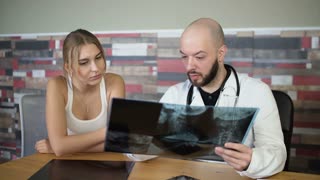LEAD ARTICLE – APRIL 2018
How Useful Are Past Medical Records?
I usually answer “vital” but there are some obvious exceptions.
When assessing a functional loss or quantifying an impairment, and attributing that loss or a component of the loss to a compensable event, it is important to measure any loss that may have predated the subject accident. This process of apportionment is often overlooked and can lead to unrealistic expectations and wasteful expensive litigation.
Conversely, past medical records can be misleading. I recall appearing as an expert witness in the District Court in Mackay many years ago. I had flown up the evening before and dined with the barrister engaged by the solicitor who had requested my attendance. I remember the evening well. We dined on mud crabs.

The case was first on the list the following morning and we duly arrived just before 10:00am. The barrister that was taking my evidence in chief was acting for the defendant. The plaintiff had allegedly injured his back in a lifting incident whilst working at one of the local cane mills. As we walked up the steps of the District Court in Victoria Street, the barrister informed me he had read somewhere in the past medical history that the plaintiff had sustained some form of back injury. I made a mental note.
During the course of the examination in chief, the barrister with whom I had dined mentioned this past history of back problems and questioned whether or not that could have been responsible for his current circumstance rather than the accident in question. I foolishly answered “yes”.
My response was foolish for several reasons. The first was that I had not taken a history from the plaintiff about this particular event that had allegedly occurred prior to the subject accident, I had not read the notations to which the barrister referred and had no idea about the significance or otherwise of this antecedent problem.
The barrister undertaking the cross examination appeared to be about as naïve as me. He did not bring it up either.

My come-uppance was brought about by the District Court judge himself. At the conclusion of the cross examination, His Honour asked me for more detail about this past medical history and how it could have an effect upon the opinion that I had previously proffered. He produced the documents in question and it was revealed that the patient had previously suffered with a mild episode of coccydynia. This is a condition that affects the coccyx and not specifically the lower lumbar spine. Apparently, the condition had arisen “out of the blue” and without any precipitating traumatic event. There was no previous history of previous back problems and my unwise apportionment of blame was exposed for the worthlessness that it contained. This was a most embarrassing moment.
It was one of many lessons that I have learned. Whilst past medical history is of vital importance, it deserves to be carefully scrutinised. Whilst it may be of some value in the final analysis, it may be totally unrelated. I have not made that mistake again.

